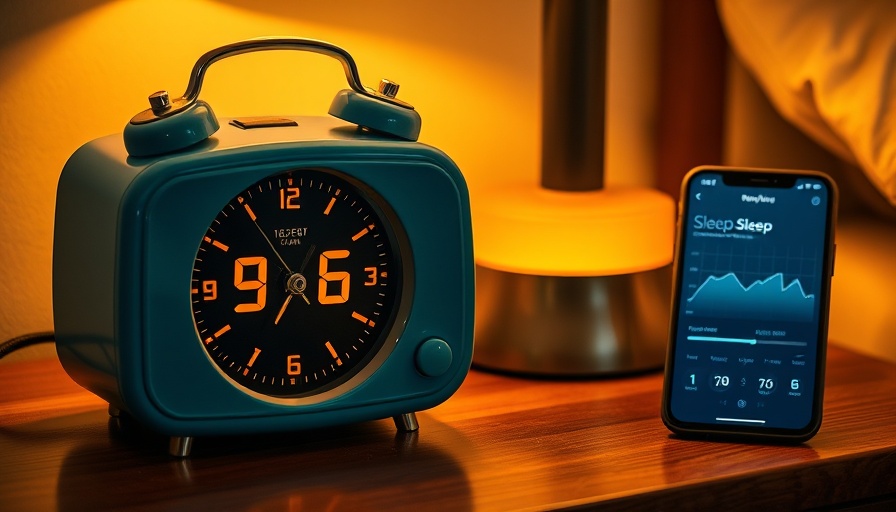
Reexamining the Impact of Screens on Sleep
In our hyper-connected world, screens have become ubiquitous fixtures in our daily lives. The influence of screen exposure on sleep quality has been a topic of heated debate for well over a decade. Conventional wisdom has long told us that the blue light emitted by devices like smartphones and tablets is detrimental to our sleep patterns by inhibiting melatonin production. However, recent findings suggest that this narrative may not be as straightforward as previously thought. A new study discussed in NPR’s recent article highlights that the average delay in sleep onset due to screen exposure is a mere ten minutes—quite less than the detrimental impacts many have anticipated. Therefore, while screens undeniably have an effect on our evening routine, the persistent fear surrounding them may require reevaluation.
Exercise: The Real Game-Changer for Sleep Quality
As more research emerges regarding sleep, it appears that physical movement may hold the key to unlocking better nights of slumber rather than merely avoiding screens. According to a scoping review published in Nature, engaging in physical activity nightly significantly enhances sleep quality. In a notable study cited, female adults suffering from insomnia who committed to thirty minutes of exercise a day experienced an additional fifteen minutes of restful sleep, underscoring the profound correlations between physical activity and restorative rest. This insight positions exercise as a proactive and approachable strategy to enhance overall health and well-being.
Customizing Your Sleep-Wellness Journey
Tracking your daily movement can be a compelling way to understand how exercise patterns affect your sleep. Many people, like NPR’s Fio Geiran, have found a personal “movement-to-sleep ratio.” For some, achieving less than 10,000 steps means tossing and turning at night, while consistently hitting targets of 12,000 or more steps can pave the way to restful nights. Identifying your own “magic number” can become motivational—transforming exercise from a chore into a meaningful component of your lifestyle that directly affects your sleep and overall happiness.
Beyond Sleep Hygiene: Integrating Technology into Wellness
In exploring the intertwining paths of technology and wellness, it is essential to note the rise of health and wellness tech innovations aimed at improving our lives. Wearable fitness trackers and sleep apps have emerged as popular tools, offering real-time data that keeps users informed. This integration of innovation into health strategies indicates a key trend in today’s wellness culture, enabling individuals to take charge of their health, monitor habits, and adapt based on precise feedback.
Community Engagement in Health and Wellness
As we embrace the importance of sleep and physical activity, community initiatives are fostering supportive networks that encourage healthier lifestyles. Local wellness programs, inspired by trends in holistic practices, allow individuals to come together, share experiences, and participate in activities designed to improve both physical health and mental well-being. Initiatives like corporate wellness programs and group fitness classes are crucial in creating a culture that values health, encouraging individuals to engage in both movement and community.
Future Insights: Evolving Perspectives on Sleep and Wellness
Looking ahead, researchers are likely to delve further into the dynamics between screen time, physical activity, and sleep wellness. With the rise of integrative health and wellness approaches, understanding how lifestyle choices intersect with sleep health will become paramount. Ensuring that emerging trends in wellness technology are harnessed intelligently may lead to solutions that not only empower individuals but also bolster community health efforts.
Embracing a Holistic Health Perspective
The discoveries around screens and sleep underscore the broader narrative of health and wellness, encouraging us to take a holistic view of our lifestyle choices. Awareness about recent studies on physical health and well-being has empowered individuals to consider how different facets of their daily lives—from physical activity to screen time—impact their overall sleep quality and health. Engaging with these updates, methodologies, and communal practices can help carve out pathways to improved mental and physical health.
Ultimately, reevaluating our perceptions of screens alongside embracing regular movement can lead to healthier, more fulfilling lives. So go ahead, check that screen from time to time, but don’t forget to lace up those sneakers and increase your step count for those restful nights. Explore community-driven health initiatives and innovations that resonate with your values for an enriching journey toward holistic health.
 Add Row
Add Row  Add
Add 




 Add Row
Add Row  Add
Add 

Write A Comment